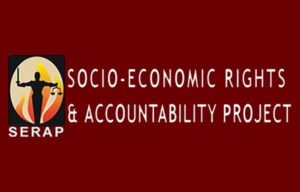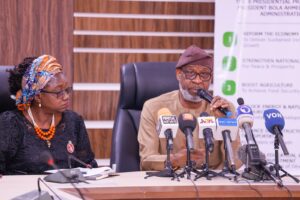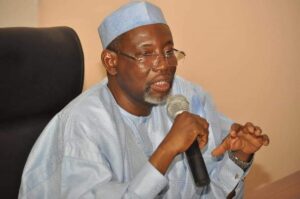NESG harps on dialogue to tackle political, economic challenges
The Nigerian Economic Summit Group (NESG) has stressed the need for dialogue as tool to tackle economic and political challenges facing the country.
The Chairman of NESG, Mr Asue Ighodalo, gave the advice at a one-day National Economic Dialogue titled: “Critical challenges confronting the Nigerian economy” in Abuja.
According to him, dialogue is imperative for any nation to realise its political and economic goals.
Ighodalo said: “It is important for us to build conversations on electing right leaders come 2023; election primaries will hold in the next three weeks and that is most important process.
“If political parties choose incompetent candidates for us, then we are saddled with the fate accomplice when we vote in 2023.
“It is important for us to drive conversation and get Nigerians talking political parties, as best as they can and each of us talking to the delegates.
“The delegates are not spirits, but from amongst us; so we need to begin to converse with them.
“We require that as they step out to vote candidates for their party, they should vote the person they are quite clear in their mind has the capacity.”
He said it had become critical in the life of the country for people to make right choices about who becomes their leader.
Some panelists during discussion, reiterated the need for citizens to engage in dialogue, as means to tackle issues and problems that hindered the nation’s political and economic growth.
Mr Samson Itodo, Executive Director of Yiaga Africa, advised that dialogue, focused on ways to ensure better future for the country, could boost national growth.
According to him, such dialogue will enable citizens to think about their future and the consequences of choices delegates make about who becomes their leader.
“Conversation should be more about choosing leaders who have requisite competences, character and capacity to grow leadership position.
“Part of such conversation should be centered on talking to Captains of Industry and not to fund bad leaders, unqualified candidates, and political parties.
“Particularly, those who are determined to rig in election, just to advance their own interest and not the public good,” Itodo said.
Dr Hussaini Abdu, Country Director, CARE International, explained that dialogue on issues about improvement of education standards could help a country to achieve set goals.
According to him, education is fundamental game changer; specifically in the life of women, because of the choices they had made in their marital life.
“When she marries, how she goes for her anti-natal, how many children she actually wants to have are defined by education, which is how important education is.
“This is message we need to spread; what education does for us is one, it strengthens and builds our skills, which is productivity related, the second one is to strengthen our life choices.
“Many times our conversation on education appears more transactional; I go to school, I want to get a good job, but the whole idea about making life choices does not come up strongly,” Abdu said.
Ms Tosin Faniro-Dada, Managing Director/CEO Endeavour Nigeria, commended engagement by young people in technological conversation.
He said it had contributed immensely in area of job creation and poverty reduction.
“SMEs provide jobs; Tech-companies provide jobs; the multiplier effect is creating more scalable companies and we are talking about inclusion, wealth creation, improving lives, transforming the economy and over all prosperity.
“Small businesses, especially technological companies, can help us to achieve these; we are working to tackle payment, logistic, commerce advertising the supply chain, pharmacies, hospital and digitizing the informal sector,” Faniro-Dada said.
Mr Ari Aisen, Resident Representative of IMF in Nigeria, urged the Federal Government to deepen with relevant development partners, to enjoy financial support when needed.
Aisen said, “The right economic policies should be developed and the IMF will be able to help and support government to build on policy and advise our member countries, to have programmes with us.”
Prof. Osita Ogbu, Professor of Economics/Director Institute for Development Studies, University of Nigeria, Nsuka called for adequate investment in the education sector, to promote knowledge sharing.
“We need to get serious about education, you cannot say students should not pay, then you cannot pay, you cannot say you do not have money, then you are establishing more universities.
“We have the responsibilities of producing post-graduates that are going to teach in those universities and we know how tedious, how difficult it is to produce such people,” Ogbu said.
Meanwhile, Dr Olisa Agbakoba, Senior Partner, Olisa Agbakoba Legal Firm, underscored the need for proper investment in maritime sector, to boost economic growth.
“Nigeria is not broke, we have N17trn, that is nothing for a national budget; if you look at the National Development plan, the maritime sector is completely omitted.
“If only the Apapa Port located in Lagos, was efficient, it will generate N20bn a day, equal to N7. 3trn a year and that can wipe out so called deficit in our national budget,” he said.




